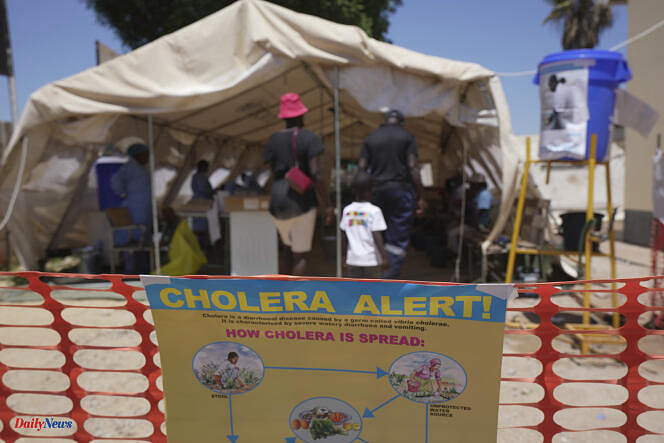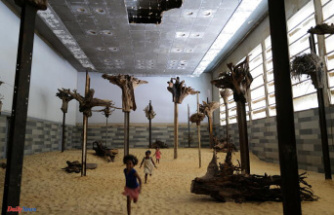The first three cases of “indigenous” cholera were identified in Mayotte, where ten imported cases had been recorded since mid-March among migrants particularly from the neighboring Comoros, announced the regional health agency (ARS), Friday 26 april. The three people involved are a woman, a man and an infant, who are not biologically related.
These are the first cases resulting from internal contamination in the Indian Ocean department. They were “identified in the commune of Koungou”, north of Mamoudzou, declared the director general of the ARS, Olivier Brahic, during a press conference. “The most likely” is that these patients were contaminated by “a sick person [who] did not present themselves to the SAMU,” he said.
“We must monitor this situation closely, we are putting in place measures to identify contacts, put people on antibiotics and we are organizing the vaccination of the inhabitants of this area,” added Mr. Brahic. At the same time, a screening center will be opened on site and twenty doctors and nurses will arrive as reinforcements in Mayotte on Saturday.
Epidemic outbreak in the Comoros
Cholera is an acute form of diarrhea that can kill within hours and is contracted by bacteria usually transmitted through contaminated water or food.
Before these three indigenous cases, ten had been confirmed in Mayotte in recent weeks. The first case was recorded on March 18, it was a woman from neighboring Comoros. On April 10, the ARS confirmed four new cases, irregular migrants arrested at sea. According to the police, these people are from the Democratic Republic of Congo (DRC) and “probably passed through the Comoros”.
On this archipelago 70 kilometers away, through which many migrants from the Democratic Republic of Congo transit to Mayotte, an epidemic has been raging since the beginning of the year. According to the Ministry of Health of the Union of Comoros, sixty-eight new cases and three new deaths were recorded for the day of April 24 alone. In total, “2,584 cases” and “61 deaths” had been recorded there on that date since the outbreak of the epidemic at the beginning of the year, according to the ministry.
The epidemic also affects several African countries. According to the World Health Organization (WHO), 26,000 cases of cholera and 7,000 deaths have been reported in ten countries on the continent. Tanzania and the DRC, where the majority of asylum seekers arriving in Mayotte come from, are among them.
“Proven and responsive system”, according to the prefect of Mayotte
To prevent the spread of the disease in Mayotte, the ARS put in place a response plan in February in the event of the disease being introduced into the French overseas department. Health controls at borders and field interventions have been strengthened, and a secure hospital care circuit has been set up.
“The objective is to stifle any outbreak of an epidemic by going on site to disinfect the home and identify contact cases to whom we give antibiotic treatment,” explains Olivier Brahic. Then, the teams vaccinate “in rings”, gradually expanding the affected area around the home of the cholera patient. In total, a thousand people have been vaccinated in the territory, where 4,000 doses are stored. Starting next week, 2,600 doses should be added to the reserves.
“Our system is now well established and responsive. The disease, for the moment at least, is not spreading as it is spreading in neighboring territories,” highlighted François-Xavier Bieuville, the prefect of Mayotte. “To avoid contamination, hygiene is essential. You must wash your hands and drink clean water,” Olivier Brahic recalled. According to INSEE, a third of the island's inhabitants do not have access to running water and power failures deprive others of running water one day in three.
Within the Mayotte hospital center, a cholera unit, with eight beds, has been set up. Its capacity will be increased to fourteen beds, and forty additional beds can then be requisitioned in the dispensaries of Dzoumogné, in the north of the island, and Mramadoudou, in the south. If this is not enough, said Mr. Brahic, tents could be set up near the care centers to accommodate sixty additional beds.












